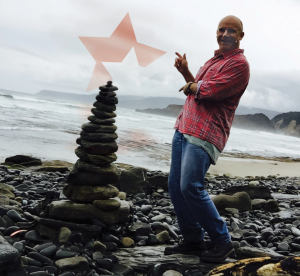If you’re a veteran of the Australian Doctor vs Medical Observer rivalry over the years you’ll be aware of the refrain from some sectors of the doctor community that “life would be simpler if there were just one newspaper to read”. Its not a view I ever held, even as the publisher of Australian Doctor , […]
If you’re a veteran of the Australian Doctor vs Medical Observer rivalry over the years you’ll be aware of the refrain from some sectors of the doctor community that “life would be simpler if there were just one newspaper to read”.
Its not a view I ever held, even as the publisher of Australian Doctor , as I once was, fighting our long time and great rival Medical Observer, or as CEO of the company that owned Oz Doc, when I oversaw the acquisition of its long time rival Med Obs, with plans to build both , and allow them to continue to compete intensely, but in complementary ways.
Competition causes creative tension.
‘One’ is not a good thing in any market. Not for readers and not for advertisers. With just one, innovation slows, initiative dry’s up and ‘the one’ gets lazy.
Of course if you’re trying build the profitability of your group for sale, which is possibly the want (and clearly the right) of the private equity owners of Medical Observer and Australian Doctor, you might take a different view.
So I rang an old friend, Dr Kerri Parnell, one of Australian Doctor’s best and longest serving editors , to ask her what she thought. Kerri loves medical media as its been most of her working life – that and being a GP. She asked me immediately ‘why’. But she wanted a real reason. Not just that someone was stuffing things up so lets jump in and fix things.
Kerri always works from a sense of purpose.
I retired to give the whole thing a bit more thought. Since leaving I had immersed myself in the world of digital disruption and transformation. It’s an incredibly fast and interesting phenomenon, changing businesses overnight and destroying some equally quickly. Digital technology is enabling the greatest changes in business – indeed most aspects of our lives – that we’ve seen since the industrial revolution.
Digital disruption has hardly hit medicine. But it’s about to, through things like cloud based scriptwriters, ingestible sensors and the like. The opportunity such change provides is to significantly improve the working lives of GPs, especially the younger ones who live naturally around the framework of their mobile devices and social media.
This is the next generation of doctors. A generation who are in the growth phase of their careers. If this group grasps the changes then they will lead the rest in breaking down barriers and improving the working lives of all GPs and, ultimately, community health outcomes.
But being a generalist in an age where information availability is exploding and specialisation is the new black is massively challenging. It is swimming against the tide of the information revolution.
Never has there been a greater need for good generalists, and never has the degree of difficulty in being a generalist been so high (and getting higher).
GPs and their unique skill in being generalists are the beating heart of the Australian healthcare system. They are the most efficient part of the system today despite the challenges, and they will need to remain the most efficient part going forward if the system is to retain its integrity.
But as our new PM says, there are a lots of reasons to be optimistic. Technology can help if we embrace it.
I didn’t have to think long about Kerri’s question. There isn’t a more interesting time to get back into medical media. Kerri knew. She just wanted me to understand our purpose very clearly.
The Medical Republic group is here to help doctors navigate what we believe will be the most challenging and most empowering years of medicine in many many years. We’re here because GPs deserve better. We’re here because society deserves better.



